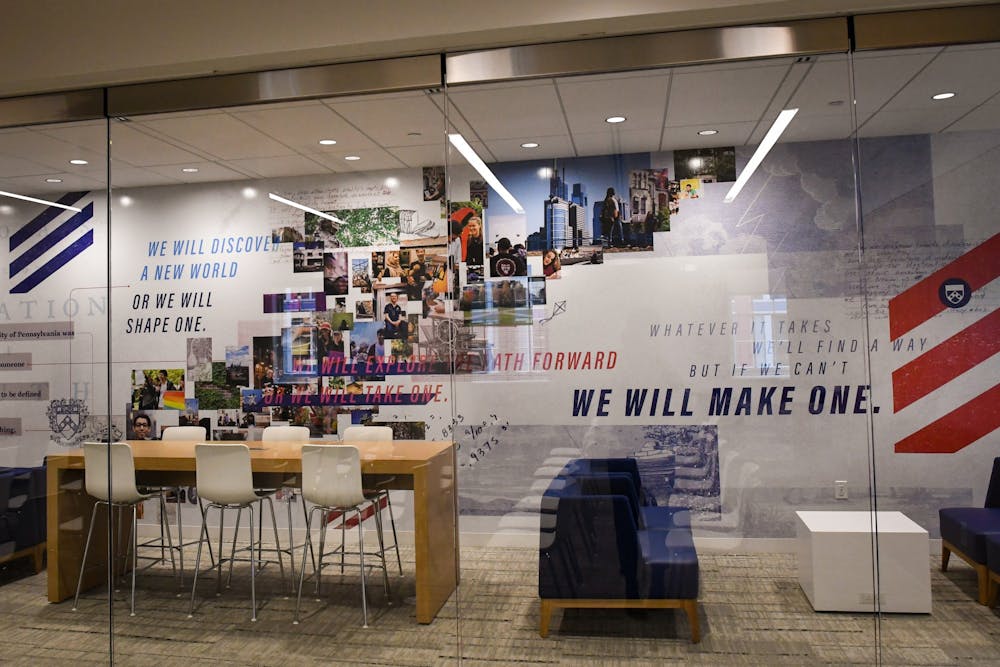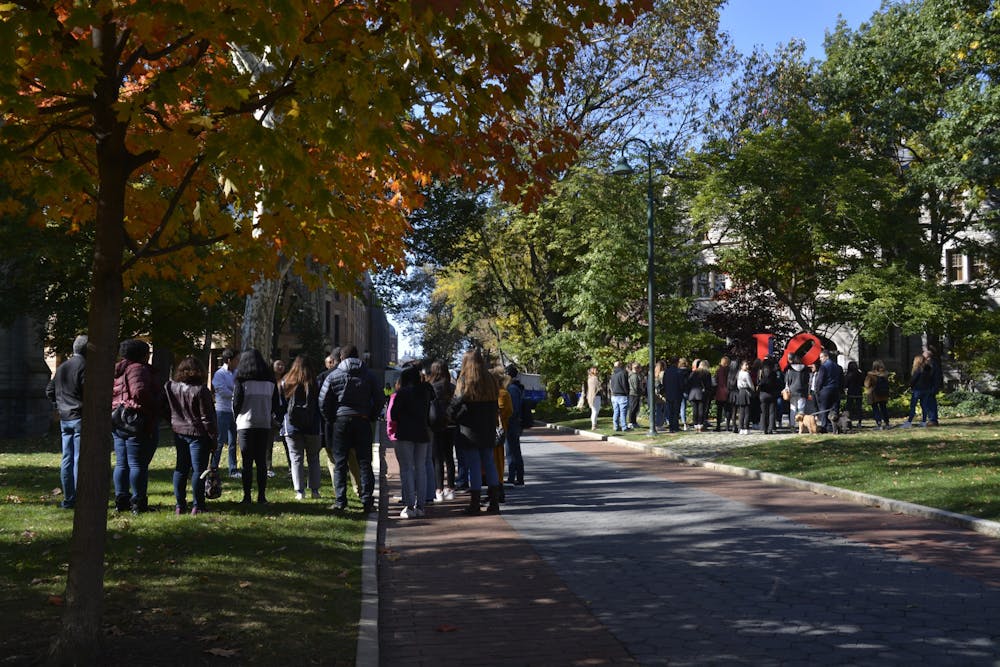
As current Penn students and professors struggle with the shift to virtual learning, the admissions team continues to recruit new students, even in an uncertain future for the school and the nation.
Aside from the University-wide switch to remote operations, the last six months have been marked by significant change for the Admissions department. They quickly expanded their virtual programming, prepared to move to a new office space on Market Street, and announced that Dean of Admissions Eric Furda will leave Penn at the end of the year after leading the department for 12 years.
Because the admissions office is independent from academic operations, they have had more flexibility over their programming during the pandemic. The office has worked closely with Kite and Key to develop virtual programming events to encourage admitted and prospective students to engage with Penn online.
“Although we're not on the academic schedule, we’re certainly mindful of it. Think about the faculty that you are learning from right now. It's just that everything that happened over the summer needed to take place in order for that to happen,” Furda said.
The admissions office decided back in March that their fall programming – like tours and information sessions, as well as traveling to speak at high schools – would be virtual, five months before the University announced that the fall semester would be entirely remote.
“We probably had an opportunity to be even more proactive because the decisions that we were making were not going to impact 10,000 undergraduates. So, early on, we were able to really say ‘we know we're not going to be able to travel in the fall,’” Furda said.
Still, admissions officers felt the suddenness of the transition to a remote spring semester back in March. The University announced its transition to an online spring semester just two weeks before the release of regular decision results for the Class of 2024.
Associate Director of Admissions Sara Cohen explained how admissions officers swiftly shifted to remote operations at a crucial time in the process.
“We did have to wrap up the remainder of our committee process and send our decisions out for our regular decision. That whole operation was conducted completely from home for our whole team. Then we transitioned into planning. The month of April is typically when we have Quaker Days and the Multicultural Scholars Program, and all of those programs were transitioned to virtual," Cohen said. "We didn't have anything to prepare us or to compare it to. We were creating our own new programs."
Engineering senior and President of Kite and Key Sofia Gonzalez echoed Cohen’s sentiments. Though Kite and Key was mostly inactive in the weeks following spring break, they quickly banded together in April to work with the admissions office once they finalized their vision for virtual programming.
“In a matter of two weeks, we had the inception of the idea, and then two weeks later was when the first live virtual tour happened,” Gonzalez said.

Kite and Key campus tours being given in fall 2019. While campus tours are now virtual, one of the benefits is being able to see more views of campus than if tours were in-person.
One of the benefits of virtual tours is greater access to on-campus spaces. With the help from an outside company to capture high-quality visuals, virtual tours allow prospective students to see more of campus than they would if they were visiting in person, according to Gonzalez.
“For the first time, visitors can actually see the inside of Fisher Fine Arts; they can see the inside of dorms in the Quad; they get to see the inside of Penn Engineering; they also get to stand at the very top of Franklin Field and see the entire view of Philadelphia. Those are visuals that they never see on the tour,” Gonzalez said. “One of my favorite things is that we get to go into the nursing school and see one of their simulation rooms.”
Kite and Key assigns three tour guides for every tour. The primary tour guide controls the screen and narrates, the second tour guide fills in gaps and adds context, and the third guide is on stand-by in case either of the two tour guides have WiFi issues.
“Because you have multiple people together, we really encourage our tour guides to interact with one another,” Gonzalez explained. “It's nice to have those stories that complement one another because then students get to see an even more holistic view of the university experience.”
Between March and August, over 7000 households visited the University virtually through admission programing.
Gonzalez feels that virtual programming allowed Kite and Key to make their resources more accessible to all potential applicants.
"Now any student with a smart device and WiFi has access to Ivy League students and Ivy League admissions officers,” Gonzalez noted. “That’s definitely going to go down as my largest accomplishment at Penn.”
The admissions team redesigned their visitor information page on the Admissions & Financial Aid section of Penn’s website to include registration for virtual information sessions and tours, as well as other online aids to help prospective students.
While info sessions and campus tours will be based at the visitor center in Cohen Hall once campus reopens, the primary office for admissions officers will move from the ground floor of College Hall to 3535 Market Street. The ground floor of College Hall will now house student support services including Penn First Plus and the Paideia Program, an undergraduate program launched last year that focuses on civil discourse.
Furda stressed that the move was necessary, as he thinks services that directly provide support for current students should be located at the center of campus.
“Anything that is student-facing and student support should be more at the core of campus,” he said. “Although it was kind of iconic to be in College Hall, the new offices are much more suited to the actual work that we do.”
After Furda leaves his role at Penn, Vice Dean, Director of Admissions John McLaughlin will serve as Interim Dean of Admissions beginning in January. A committee of students and trustees is working with an external firm hired by Penn to conduct the search for the new dean. The new dean is expected to start in July 2021.
Furda will join the college counseling team at William Penn Charter School, where his two children currently attend.
"I've been bringing my kids to and from school, and the fact that I'll be able to bring them out and then just park the car and stay there is going to be a big life change or all of us," Furda said.
Correction: A previous version of this article incorrectly stated that Annenberg professor Kathleen Hall Jamieson chaired the committee to search for the new dean, while in fact she is a member of the committee and not the committee chair. The DP regrets this error.
The Daily Pennsylvanian is an independent, student-run newspaper. Please consider making a donation to support the coverage that shapes the University. Your generosity ensures a future of strong journalism at Penn.
Donate






